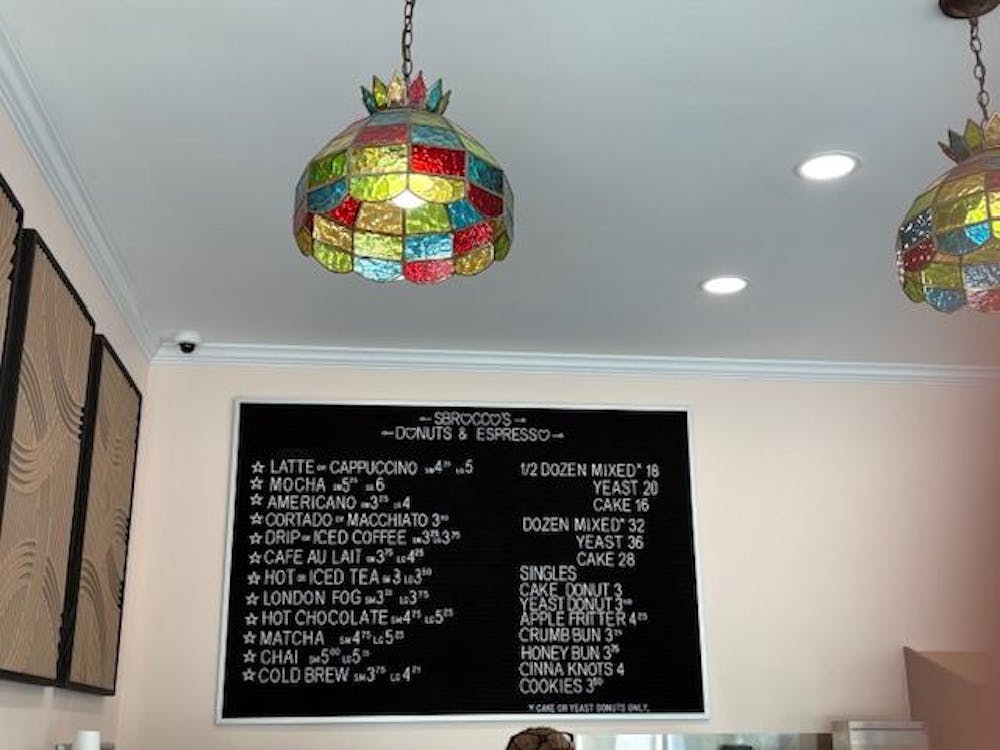There is an intensely romantic scene halfway through "Notting Hill," an image replete with the charm, subtext, nuance and passion that denote the best of love stories.
Unfortunately, the scene occurs between two supporting players rather than Hugh Grant and Julia Roberts, the film's leads.
Instead, the luminous Bella (Gina McKee) and Max (Tim McInnerny) achieve more romance in their portrait of a husband lovingly carrying his wheelchair-bound wife up the stairs than Grant and Roberts do through the entirety of this fragmented love story.
The fault here lies less with the film's stars, however, and more with Richard Curtis' ("Four Weddings and a Funeral") uninspired script. As he mirrors the formula of "Four Weddings," Curtis creates a modern-day love story that lacks love.
Grant repeats his charming persona as William Thacker, an affable but discomfited divorcee. Yet it is hard to find anything new in this sympathetic lug that audiences did not already see in "Four Weddings."
When mega-movie star Anna Scott (Roberts, deftly satirizing while simultaneously honoring her own celebrity status) enters William's bookstore, one is never quite sure whether the vain actress does so to hide from aggressive fans or due to genuine interest.
And if she really is the most famous working actress, why doesn't anyone recognize her when she and William dine out?
Why, one may ask, are William and Anna dining together in the first place? The film ignores the issue altogether.
Within minutes of her entrance into the film, Anna bumps into William a second time, goes back to his apartment to change her clothes, and the two kiss before Michell allows chemistry to develop.
"Notting" supplies two attractive characters but gives no great reason for them to get together except for the fact that no one wants to pay to see a movie about a failed match.
Michell's main error in making the courtship between William and Anna believable is poor editing. Just as Andie MacDowell did in "Four Weddings," Anna comes in and out of William's life multiple times for personal and professional reasons.
This gives "Notting" a lurching quality, as if their relationship is merely a series of stops and starts, denying their love a chance to build on-screen.
The smarter aspect of the film, however, comes into play during its sly
references to Hollywood and the notion of stardom. One of Curtis' most clever Hollywood in-jokes involves a parody of
a press junket, as Anna promotes her newest film.
Roberts knows a thing or two about the invasive appetite of the media. As a result, she lends Anna a refreshing sense of vulnerability beneath her poised exterior.
Grant is at his best when working with the film's supporting ensemble, which in addition to McKee and McInnerny also includes James Dreyfus, as his friend Martin, and Emma Chambers, as his frazzled sister, Honey. Rhys Ifans is blessed with the show-stopping role of Spike, William's slovenly flatmate.
Curtis and Michell had great potential in this tale of people from different worlds coming together. But they omit references to the real Notting Hill, a place plagued by racism in the 1950s but which has since become a culturally diverse community.
While "Notting Hill" misses the mark, its heart remains in the right place. The problem is, it takes too long to find a pulse.
Grade: C






